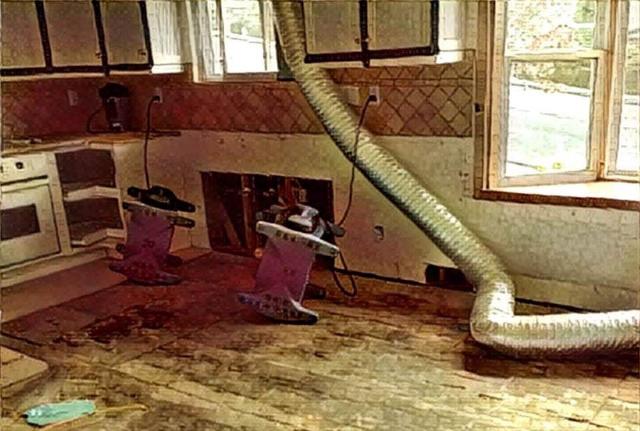Climate madness is creating a nation of building code scofflaws
REACH Codes are building ordinances that some local California governments have adopted. They go far beyond the requirements of California’s Energy and Green Building standards codes. They are meant to reach “climate action” goals, reduce greenhouse gas emissions, and accelerate “decarbonization” by mandating all-electric new construction, upgrades to solar with remodeling projects, and electrical system upgrades to encourage electric appliance upgrades. These plans take a huge chunk of out Californian’s pocketbooks.
If you look at a California energy bill, you’ll see that our electric rates are obscenely high. And if you’ve ever suffered through one of California’s increasingly frequent power outages, you’d be eternally thankful for elderly gas stoves and heaters that don’t require electric switches to trigger them.
I live in a “small town” bedroom community that’s part of the greater SF Bay Area. As one might expect, it’s a haven for progressive policies, so long as they serve the city’s image as an upscale and safe community. We still have police, for instance, and a zero-tolerance policy for encampments. However, things have changed mightily of late when it comes to city planning. I see this change in real time because I regularly take walks in my community.

Image by Andrea Widburg
When we remodeled our kitchen 15 years ago, we submitted plans, they were reviewed, and we obtained approval. We had the work inspected and did it all “by the books.” When we re-sealed our front deck (over the garage and right out on the street, as we have a little front yard), we did the same. In fact, we had to get an extra, expensive permit to change our porch lights—with our neighbors required to sign off.
Then, California went woke. Second units are allowed, no questions asked, on any patch of yard one has, changing the requirement that only 40% of a lot could be covered. It also used to be that if your remodel added a closet to create a bedroom, you had to add a garage space. Now, garages are turning into second units, back yards are filled to the max, and the planning commission has zero say in it, including no design review, parking impact study...nothing.
Next came the REACH codes. In our town, that means new construction must be all-electric with no gas line. If you do a remodeling project over a certain value or expand the roof area by 30%, you must (if you haven’t already) add solar panels to the roof. If any project costs $30,000 or more (what doesn’t these days?), you must upgrade to solar, or, if you have that already, add energy-efficient insulation or electrify your heating system—both, if the project is more expensive. The goal is to reach zero emissions by 2050.
To the progressive mind, this is all an improvement. So what if residents freeze in a winter outage or can’t cook a meal or shower if the power goes out?
The result, of course, isn’t more energy-efficient building; it’s that residents are turning to surreptitious remodeling work. As I walk around, I see very quietly done remodeling without any permits. I know it’s without permits because I started plugging addresses into the city’s planning commission search and was amazed to see that not a single project, other than the obvious, large tear-down-rebuild projects, came up as having plans on file or permits issued.
I could name three addresses near my home where this is true. It’s the old “law of unintended consequences.”
Here’s just one example: Around 20 years ago, our former next-door neighbors did a quick, non-permitted bathroom and kitchen remodel right before they sold the home. The new owners rented out the house because they weren’t ready to move in yet.
The renters eventually discovered that, while the plumbers had put in new pipes, those pipes ended inside the walls rather than attaching to the sewer system. This caused the expected problems—black mold developed, and it was an ugly thing, bad enough to put a young baby in the hospital and make the family move out (and probably sue). The new owners had to tear out the walls and start over (and, again, probably sue the old owners if they could find them).
We can hope that local residents are more careful than that very unscrupulous family, but who knows? Under reasonable building codes, the planning process, approval and inspections of the work are meant to protect us. My mother was fond of the saying, don’t cut off your nose to spite your face. As a child, I never knew what she meant. This, I think, is a prime example.





